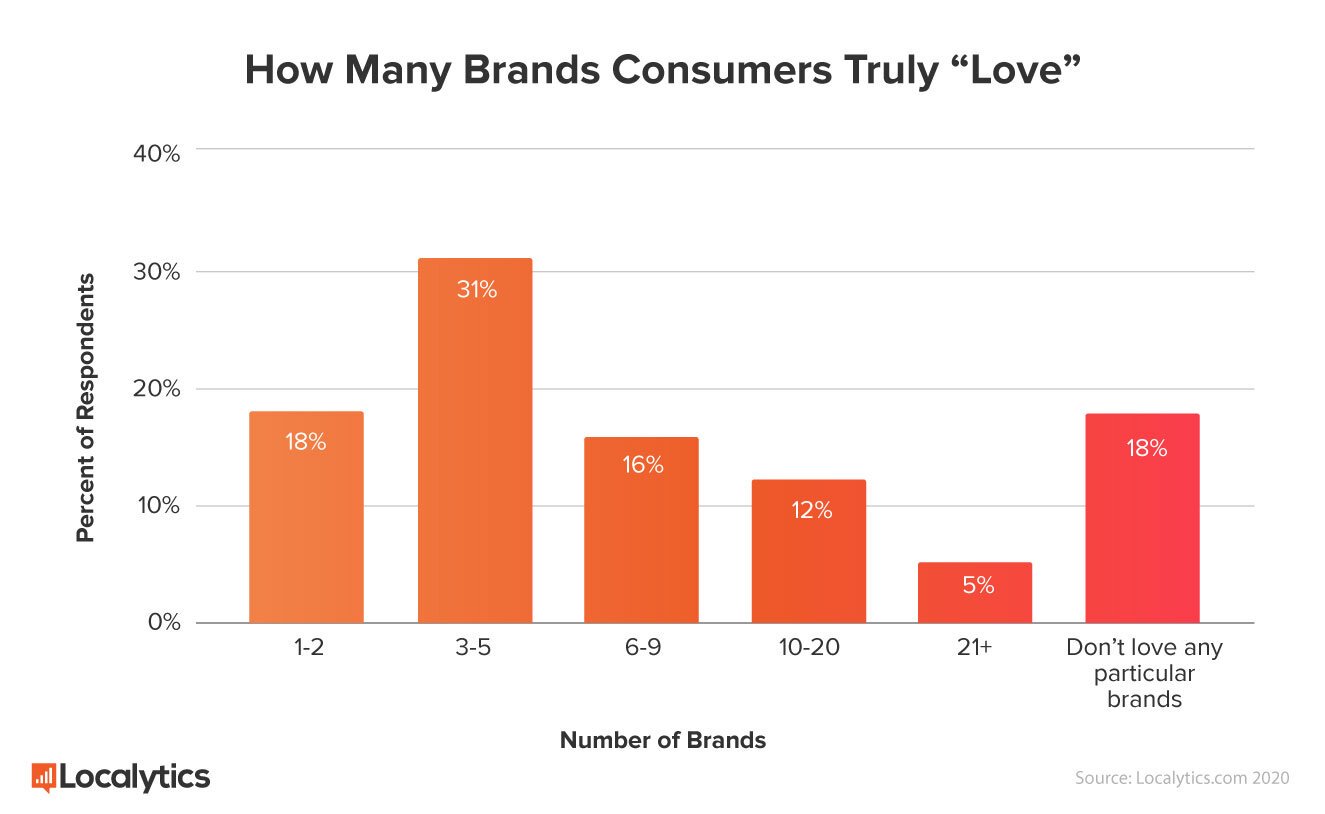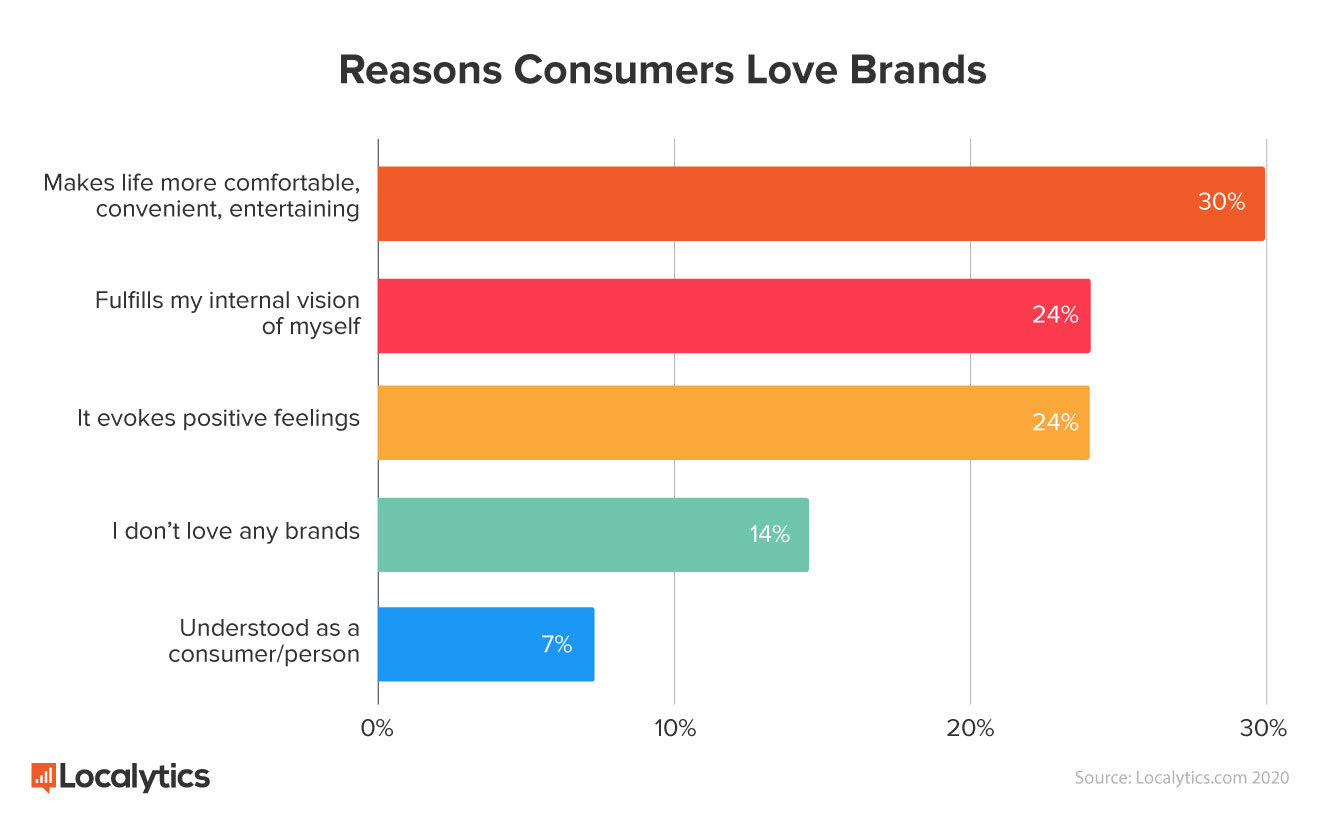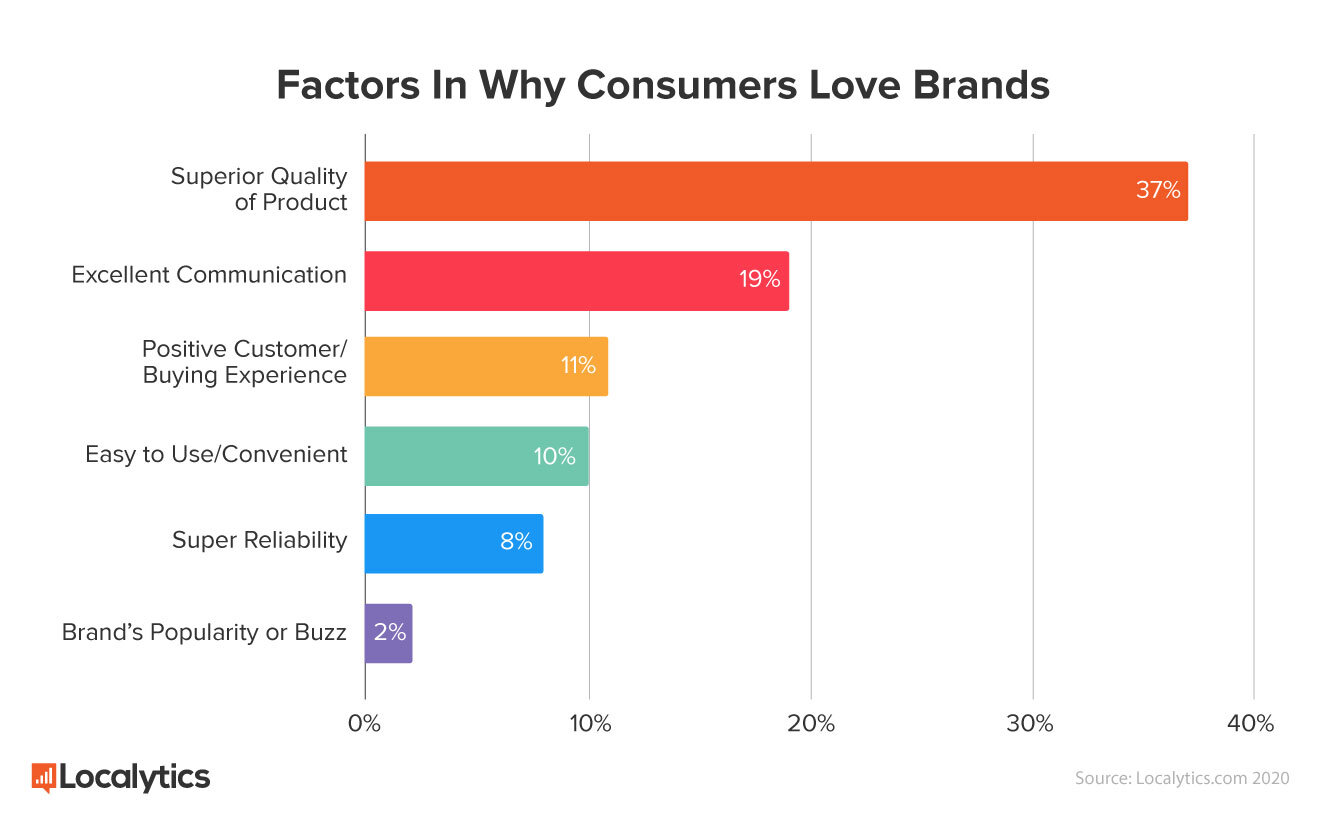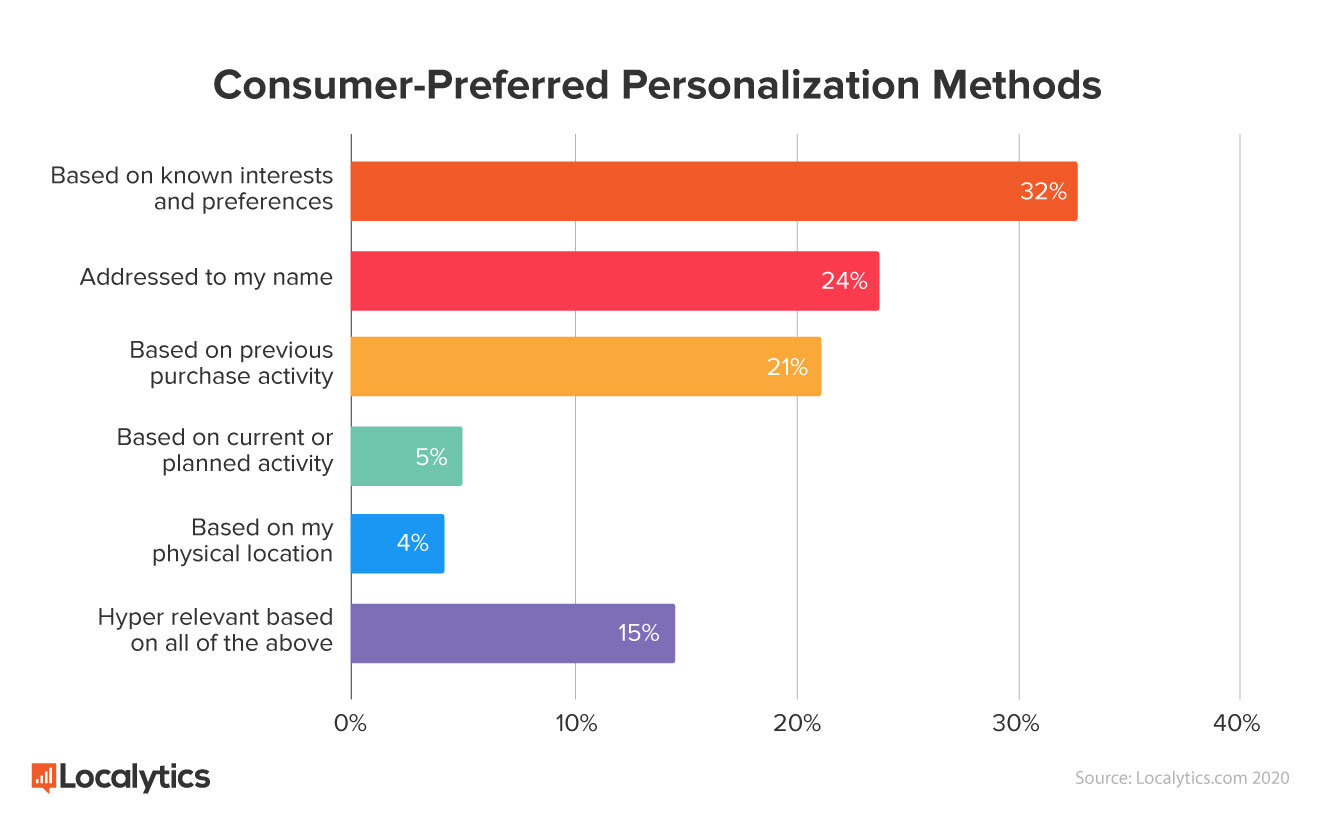Consumers have more choices than ever before. When it comes to the brands they choose to engage and buy from, what are the characteristics that are most important? What helps differentiate one brand over another? And, what are the intangible elements that make consumers become loyal, and truly love a brand?
To better understand why consumers fall in love with their favorite brands, we commissioned Dynata, an online market research firm, to conduct a survey. We received 1,000 responses from U.S. consumers over the age of 18. We learned that while consumers do love some brands, it turns out it’s not quite as many brands as you might think. Based on our survey results, marketers hoping to create brand advocates must rethink their current personalization and customer experience strategies.
Consumers only truly love a handful of brands
Our survey revealed that consumers are selective when it comes to the brands they love. In fact, 49 percent of consumers love between one and five brands, and an additional 18 percent indicated they don’t love a single brand.

With nearly half of consumers loving a handful of brands, there is clear competition for consumer attention. But what exactly drives consumers’ decisions to love certain brands over others, and how can your brand become one those top five brands loved?
Intangible elements that help a consumer fall in love with brands
Happiness/fulfillment (56 percent) and confidence (42 percent) are the emotions consumers most associated with making a purchase from a brand they love, followed by joy/excitement (35 percent), safety (25 percent), cool/trendy (20 percent), and attractive (16 percent).
When asked “Which of the following most accurately describes what loving a brand means to you,” consumers’ responses included the following reasons in the chart below.

Brands looking to become loved by consumers should consider these intangible elements as part of their branding and customer experience strategy.
Top factors of why consumers love brands
When asked which factors most impact why they love a brand, it’s clear that a superior product (37 percent), excellent communication (19 percent) and positive customer experience (11 percent) were at the top of list. These factors outweighed ease of use, reliability, and brand popularity.

The right brand communication and consumer engagement strategy is key
While quality of product is still critical to helping a consumer fall in love with a brand, just as important to consumers is the overall experience. Combined, brand communication and customer experience makes up 30 percent of why consumers love brands.
Brands can’t take a generic, one-size-fits-all approach to communications with consumers—it’s one of the most important factors in building trust, loyalty, and ultimately love.
Alarmingly, our research found that brands understanding their customers is the least popular reason for consumers to love brands. In fact, 69 percent of consumers agree brands often send them irrelevant/unhelpful information and don’t understand them.
It goes to show that brands today aren’t utilizing the full arsenal of information they have at their fingertips to truly get to know their customers.
Personalization—a missed opportunity for marketers to create brand love
Our findings illustrate a glaring missed opportunity for marketers to turn customers into brand evangelists. The vast majority are alienating customers by not taking the steps necessary to build a genuine connection with them.
Marketers must get beyond one-size-fits-all marketing to engage consumers. In fact, 53 percent of respondents said they expect brands to get to know their interests, established preferences or past purchases to truly personalize their communications. Although 23 percent of respondents still want communications addressed to them by name, we have learned that it is more important to go beyond those Phase 1 personalization tactics, in order to truly understand your consumer.

Consumers also want to be communicated through a variety of channels—57 percent prefer email communication; 23 percent prefer mobile app, website or text message; 11 percent prefer direct mail; 6 percent prefer social; 3 percent prefer phone.
Key takeaways for marketers and customer experience pros
We as consumers really only have the capacity to love a handful of brands at once, so we gravitate toward those who demonstrate a desire to truly listen and understand us. Marketers recognize this reality and often try to personalize communications with customers in order to see a corresponding increase in engagement. The trouble is, personalization isn’t binary and it’s not a destination—it’s ever evolving.
To help consumers fall in love with a brand, marketers must go beyond their usual targeting, employing deeper behavioral insights to truly understand what information a consumer wants, and how it should be delivered. Brands must be able to connect with the consumer and deliver the right message, on the right channel, at the right time, as part of the customer experience.
Marketers who take these insights to heart will start to move down the path toward understanding what makes each consumer unique so that they can create the best experience possible for each of them. From there, they can begin to build trust, loyalty and, ultimately, love with the consumer.
Want to learn more? Download the full report on our website and join us for a webinar with AMA on February 26 to discuss these findings and personalization strategies for marketers. For now, you can learn more about Localytics’ solutions and follow Localytics on Twitter for the latest company updates.
